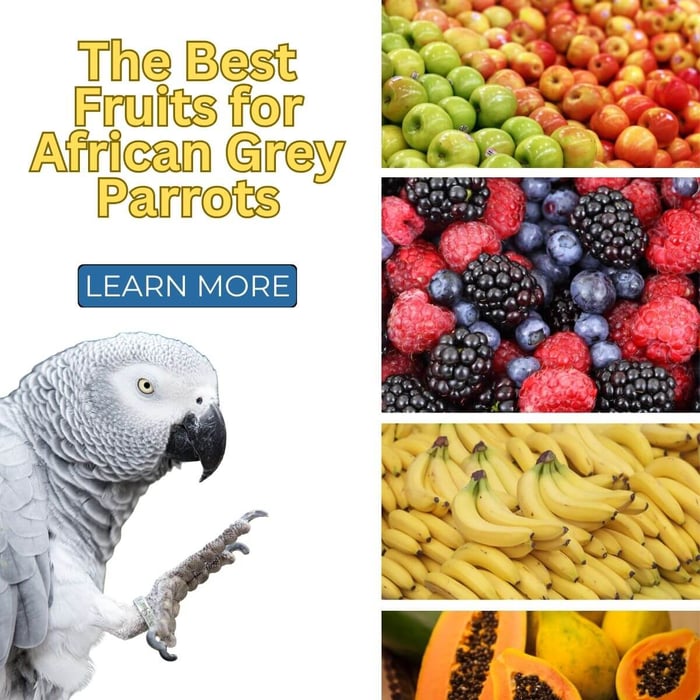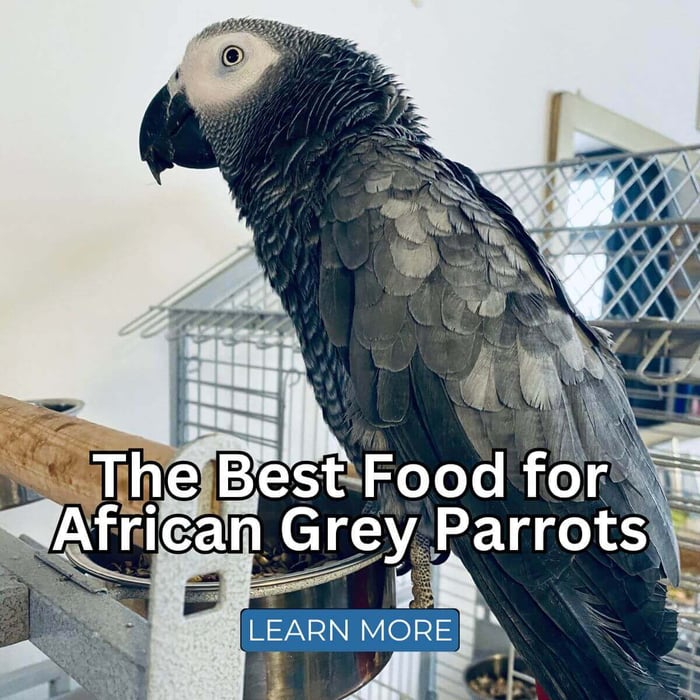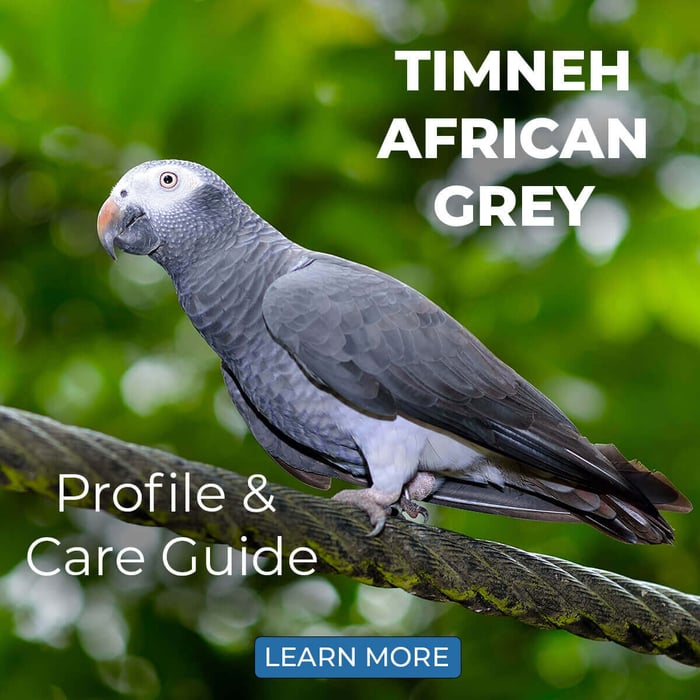The Best Nuts for African Grey Parrots - A Tasty and Healthy Treat Guide
African Grey parrots are among the most intelligent and curious parrot species, and keeping them healthy means providing both proper nutrition and daily mental enrichment. While a high-quality pellet diet forms the foundation of good nutrition, offering nuts as occasional treats can significantly boost their well-being. Let's take a closer look at some of the best nuts for African Grey Parrots and what makes them ideal additions to their diet.
Packed with essential fats, vitamins, and minerals, nuts are not only nutritious but also encourage natural foraging behaviours that keep your parrot mentally stimulated. But not all nuts are suitable, and knowing which ones offer the most benefits, without the drawbacks, is key to supporting your Grey's health.
Why Nuts Are Great for African Greys
Nuts are high in healthy fats, proteins, vitamins, and minerals. For African Greys, they offer:
- Mental enrichment – Cracking shells and foraging mimic wild behaviours.
- Feather and skin health – Thanks to Omega fatty acids and vitamin E.
- Energy boost – Nuts provide long-lasting energy for these active birds.
However, nuts should be given as treats, not staples. They're calorie-dense, and overfeeding can lead to obesity. A good rule of thumb is to keep nuts to 5–10% of your parrot's overall diet.
Walnuts – A Brain-Boosting Super Nut
Walnuts are excellent nuts for African Grey Parrots' treat rotation. They're rich in Omega-3 fatty acids, which are essential for brain health, making them particularly beneficial for such a highly intelligent species. These healthy fats also support cardiovascular function and contribute to a glossy, well-maintained plumage. African Greys benefit from walnuts' anti-inflammatory properties, especially as they age. Offering walnuts in the shell can turn snack time into a fun foraging activity, giving your bird both mental and physical exercise. Just be sure to choose fresh, unsalted, raw walnuts - free from preservatives.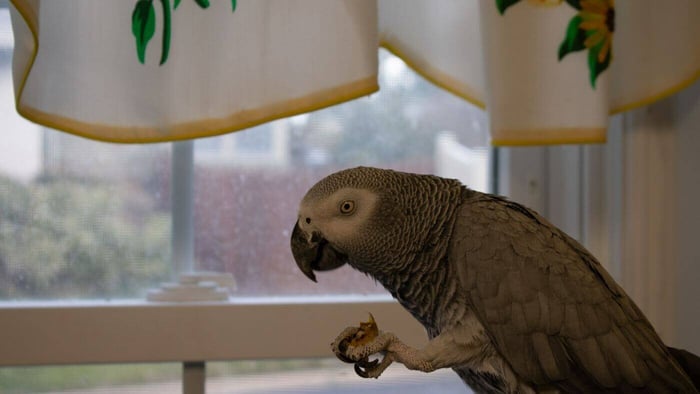
Brazil Nuts – Selenium-Rich and Immune-Boosting
Brazil nuts are best served in moderation, but their nutritional benefits are powerful. They are extremely rich in selenium, a trace mineral that plays a vital role in immune system function and acts as a strong antioxidant. Just one Brazil nut can offer more than enough selenium for a parrot's daily needs, so offering no more than one or two per week is ideal. Overconsumption can lead to selenium toxicity, so they're best treated as a special snack rather than a regular treat. These large nuts can also encourage foraging if left in the shell.
Hazelnuts – A Feather-Enhancing Favourite
Hazelnuts are small, round, and packed with beneficial nutrients like vitamin E, manganese, and healthy fats. These components contribute to skin health and vibrant, smooth feathers, especially important during moulting seasons. African Greys generally enjoy the taste and texture of hazelnuts, making them a popular choice among parrot owners. Like other nuts, they should always be raw and unsalted and offered in moderation. Shelled hazelnuts are an easy, quick snack, while in-shell options provide a bit more entertainment.
Pistachios – The Colourful Cracker
Pistachios are bright, fun, and full of nutritional value. They contain a good dose of vitamin B6, which is vital for nerve health and the production of neurotransmitters, and potassium, which supports muscle function and heart health. African Greys are quick to learn how to remove the shells, turning pistachio time into an engaging activity. As with all nuts, only feed unsalted pistachios - many commercially available versions are heavily salted and entirely unsuitable for birds.
Almonds – The Calcium Powerhouse
Almonds are another top choice, particularly because they are one of the best natural sources of calcium among all nuts. Calcium is essential for maintaining strong bones and proper muscle function, especially important for African Greys, who are prone to calcium deficiency. In addition to calcium, almonds are packed with vitamin E and healthy fats, which support immune health and feather quality. Always offer almonds raw and unsalted. In-shell almonds can be a great challenge for your parrot to crack open, helping to satisfy their natural instincts and prevent boredom.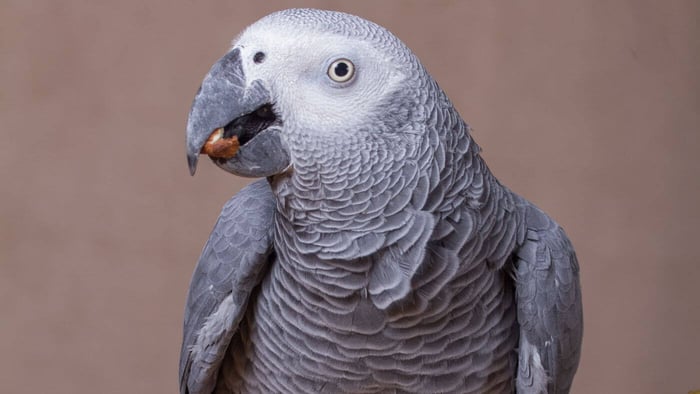
Pecans – A Sweet and Energy-Dense Treat
Pecans are a naturally sweet, buttery nut that many African Greys find irresistible. They are calorie-rich and full of antioxidants, which help fight oxidative stress and support cellular health. While they are a good source of energy, it's easy to overdo it, so pecans should be given occasionally and in small quantities. Shelled pecans are convenient, but the extra step of offering them in the shell adds value in the form of foraging fun.
Cashews – Creamy, Nutrient-Dense and Delicious
Cashews are smooth in texture and mild in flavour, making them a favourite treat for many parrots. They contain magnesium, iron, and healthy monounsaturated fats, which are great for metabolic function, cardiovascular health, and strong bones. However, due to their high-fat content, cashews should be given in very limited quantities - just a few pieces once or twice a week. As always, raw and unsalted varieties are the only safe option.
Nuts to Avoid
It's important to know that not all nuts are safe for parrots. Peanuts, for example, should be given with caution. Although some birds love them, peanuts - especially those not specifically tested for bird consumption - can harbour aflatoxins, a type of toxic mould that can be fatal to parrots. Additionally, salted or roasted nuts should never be given. Salt can quickly cause health problems, including kidney damage and roasting often involves added oils or preservatives.
Final Tips for Serving Nuts for African Grey Parrots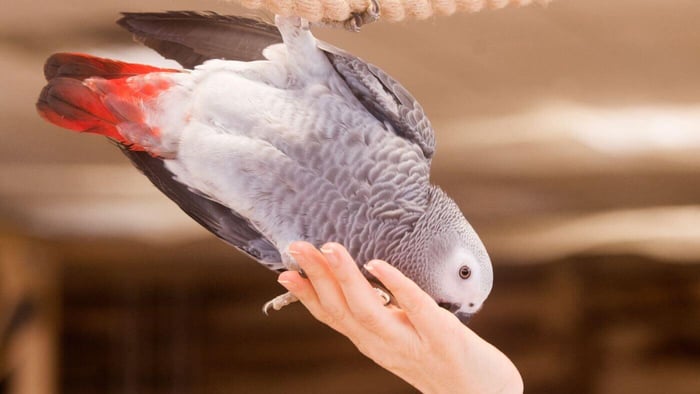
- Rotate types to offer variety and prevent boredom.
- Use as training rewards to build trust and reinforce good behaviour.
- Combine with foraging toys to create an enriching experience.
- Store in a cool, dry place to avoid mould growth.
In a Nutshell…
African Grey parrots can enjoy a wide range of nuts as part of a balanced and enriching diet. From walnuts to almonds, each nut offers unique health benefits and opportunities for stimulation. Just remember - moderation is key!
At Parrot Essentials, we offer a range of nutritious treats and foraging toys that pair perfectly with healthy snacks like nuts. Want to add more enrichment to your parrot's day? Explore our collection of parrot toys and healthy treats today.
FAQs
How often can I give nuts to my African Grey Parrot?
Nuts should be given in moderation—about 5–10% of your parrot’s overall diet. This usually means a few times a week, depending on the nut and your parrot’s size and activity level.
Can African Greys eat salted or roasted nuts?
No, always avoid salted or roasted nuts. Only offer raw, unsalted, and unflavoured nuts to keep your parrot safe and healthy.
Are peanuts safe for African Grey Parrots?
Peanuts can carry aflatoxins (a harmful mould), so only offer them if they are specifically tested and safe for birds—and even then, only occasionally.
What are the best nuts for African Greys?
Some of the most beneficial options include walnuts, almonds, Brazil nuts, hazelnuts, pistachios, pecans, and cashews—each offering unique nutritional benefits.
Should I give nuts with or without the shell?
In-shell nuts are great for encouraging natural foraging behaviour and mental stimulation. Just ensure the shells are clean and safe for parrots.

